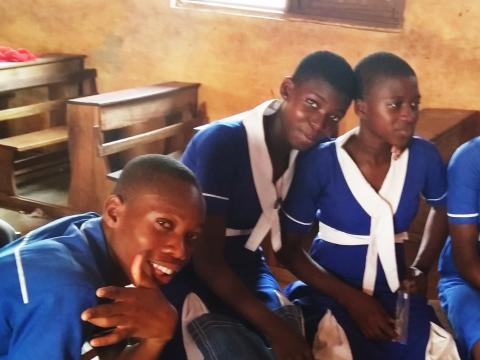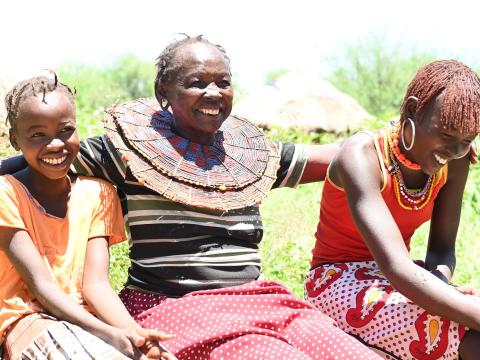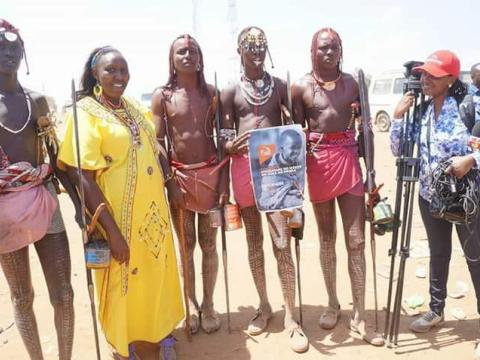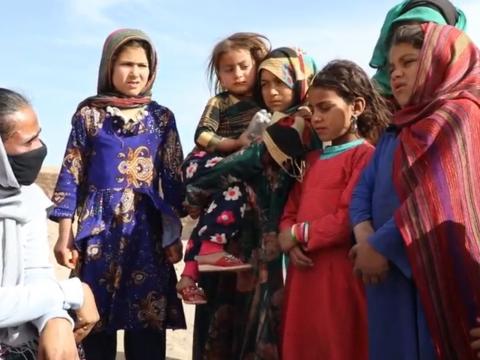
Girl power stopping child marriages
Mary, a teen from Ghana, shares what she and her friends do to save girls from child marriage in their community and to change people's minds about early marriage.
Mary, 17, Child Parliament member in Tamale, Northern Ghana.
Child marriage is unfortunately very common in Ghana, especially in rural communities in the Northern Region where I hail from. Last year, child parliaments recorded over 1000 girls married during the COVID-19 crisis when schools were shut. Many of those marriages took place in the Northern and Central regions. Even before the pandemic, one in five girls in Ghana married before their 18th birthday.
Stopping child marriage in Northern Ghana
As an active member of the child parliament at my school, I have learned about the damaging effects of child marriage on girls and, more importantly, how to advocate to end this long-standing problem. When we’ve discovered girls who were about to get married in our community, we take action.
There was a girl who was almost married when she was in primary school, but thankfully we were able to stop it. We started by informing the World Vision staff. We then visited the girl’s family to discuss the issue with them, but they didn’t want to listen. We were fortunate to get a lot of support from community leaders, like our Chiefs, queen mothers, faith leaders, as well as the political leaders in the district.
Although we managed to have the girl’s wedding cancelled, recently we found that her parents were attempting to offer her up for marriage again. This time we invited the police to take necessary action. They helped a lot and went to her home to give another warning to her parents. Now she’s still in school, and has progressed from elementary to junior high.
When I got to Senior High School, I realised that child marriages were also on the rise in the two communities close by the school. One of my best friends was involved, so I discussed the case with the school prefect and headmistress to attempt to stop these cases. We created a subgroup of Young Female Parliamentarians so we have a space to discuss and play with other girls at our school and other schools nearby. We’ve managed to save about five girls 774 marriage from my school.
Last year, we had a lot of girls get pregnant too – there were 72 girls at my Senior High School. Most of them – 70% of them – were married off, just because they were pregnant. Most parents think that once a girl is pregnant, she should just be married. But a girl has another chance for education. Parents don’t see that. Our education system has improved recently; there’s a policy that if a girl gets pregnant she can go back to school and continue her education.
Changing Ghanaian society’s attitudes to teen pregnancy and child marriage
In the club, we also focus on teenage pregnancy, which is one of the leading causes of child marriage in our communities. We raise awareness so children can learn about how to care for themselves during the period of transition into adulthood. As part of our culture, adults - especially our parents - do not educate children about sex. We identified this as one of the causes of teenage pregnancies and ultimately child marriage in our communities.
We petitioned the Municipal Chief Executive of our community to register our displeasure for the increasing number of child marriage cases and requested him to take action. We also organised girls’ soccer clinics for girls in rural communities, where we, as child ambassadors, can use these games to get in contact with young people and educate them on the role they can play to help end child marriage. Through drama, we have been able to educate parents and children on the negative effects of child marriage and, more importantly, who to report cases of child marriage to at the school and community level. During the pandemic, we moved our dramas to television to try and fight the increasing violence against children.
I think it is so important for children to be consulted on the issues that concern them. It’s frustrating to see rising cases of child marriage and not have politicians take action. They wait to hear about a case and then they take action. They don’t work to educate children and parents beforehand.
Our goal at the child parliament is to stop this and invite others to join hands with us. If families saw the policewomen looking into cases of child marriage, they would know that we were serious. The people who break child marriage laws should be punished.
We don’t want to wait. We want to stop child marriage now.
Image: Mary, middle, and her friends in school.


